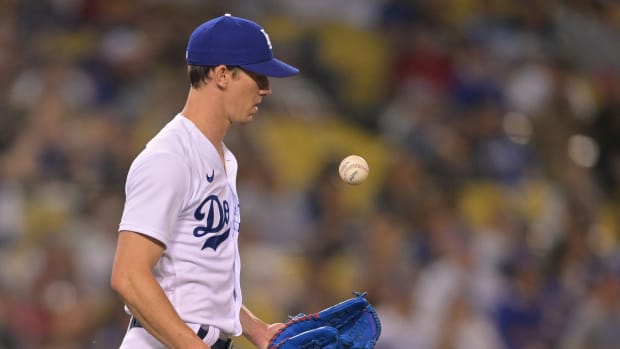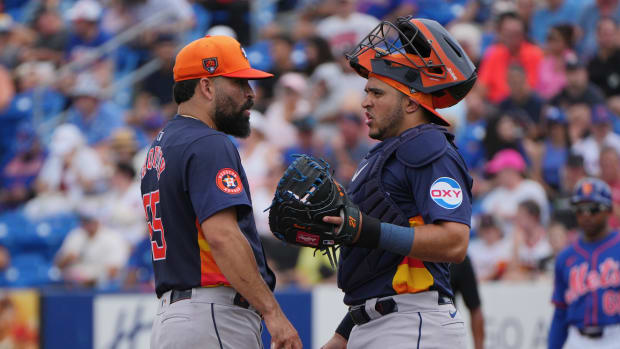
One way to get more stars to participate in the World Baseball Classic
Too many stars like Tigers ace Justin Verlander are skipping the WBC, even if they have good reasons. (AP)
By Jay Jaffe
We're halfway through the first round of the World Baseball Classic, with Pools A (Fukuoka, Japan) and B (Taichung, Taiwan) having concluded and Pools C (San Juan, Puerto Rico) and D (Phoenix, Arizona) set to begin on Thursday afternoon. While the action has been intermittently compelling — I've particularly enjoyed the teams from Cuba and the Netherlands — too much of the focus remains on the major leaguers who aren't participating instead of those who are, particularly for Team USA.
Pitchers such as Justin Verlander and Cole Hamels are among those who have offered perspectives on their individual reasons for forgoing the games, with explanations that are reasonable enough. On the other hand, murmurs of teams pressuring players not to participate, or at the very least nixing the participation of players whose season ended on the disabled list such as Johnny Cueto, have underscored the forces at work behind the scenes.
In watching the games the other day, I was struck by an idea that could provide an incentive for major league teams to let their players participate: roster exemptions based on the total number of days their players miss in the service of representing their countries.
Suppose you're the Brewers, with Ryan Braun playing for Team USA, Yovani Gallardo and Marco Estrada for Mexico and John Axford and Jim Henderson for Canada. Over the course of the Classic, suppose those players spend a total of 25 days out of spring training camps, playing and practicing with their national squads. In exchange for that inconvenience, the Brewers would get 25 player-days worth of roster exemptions for the regular season — days in which they can carry an extra player beyond the regular 25-man roster. They could use those exemptions to take a longer look at a player in the spring, perhaps a Rule 5 pick they haven't decided on whether to carry or return to his original team. They could add an extra pitcher or hitter for a given series, such as an extra bat to DH in an interleague game, an option that might be particularly appealing to NL clubs. They could use it to dodge a trip to the disabled list for a player who might miss a week but wouldn't need a whole 15-day stint.
Such an idea would provide the participants' team with a slight advantage, just like the post-Sept. 1 period when teams can expand their rosters beyond the normal 25. The particulars of the exchange rate are debatable; perhaps it's days beyond a minimum number like 5 or 10, so 25 days worth of WBC participation would yield only 15 or 20 days of exemptions. Perhaps teams would be allowed to double up, so 20 days worth of exemptions would allow a team to carry two extra players for 10 days if they so choose. Perhaps there's a sunset clause attached to the exemptions, so that they have to be used by a given date or lost — end of April, Memorial Day, All-Star break, July 31 trading deadline, whatever. Perhaps they could be used as throw-ins in a trade, the equivalent of a low-level player to be named later or the price of a Rule 5 keeper.
The players' union would likely be on board with this, because it's extra days of service for their rank and file members. Teams might be more wary because they'd be paying at least a prorated minimum salary for those days, but 15 days at a rate of $480,000 per season only comes out to about $45,000. For rounding purposes, compare $50,000 against the commonly held value of each marginal win at $5 million; a team would only have to gain 0.01 wins -- 1/100 of a win -- to justify the cost. Given that they share in the tournament's revenue, and that more MLB participation from big-name players would likely improve television ratings, attendance, and merchandise sales, such an expenditure would likely become a significant financial gain for MLB.



































